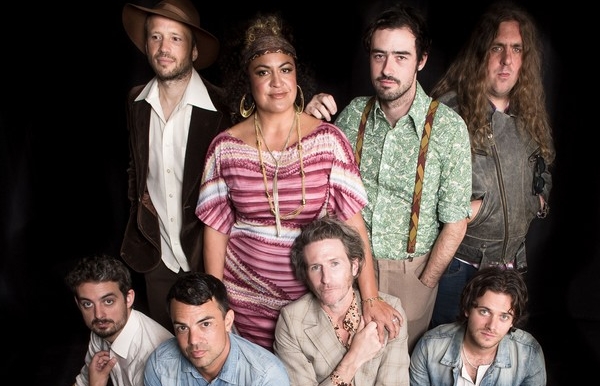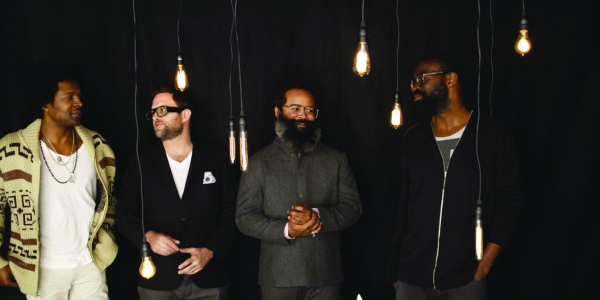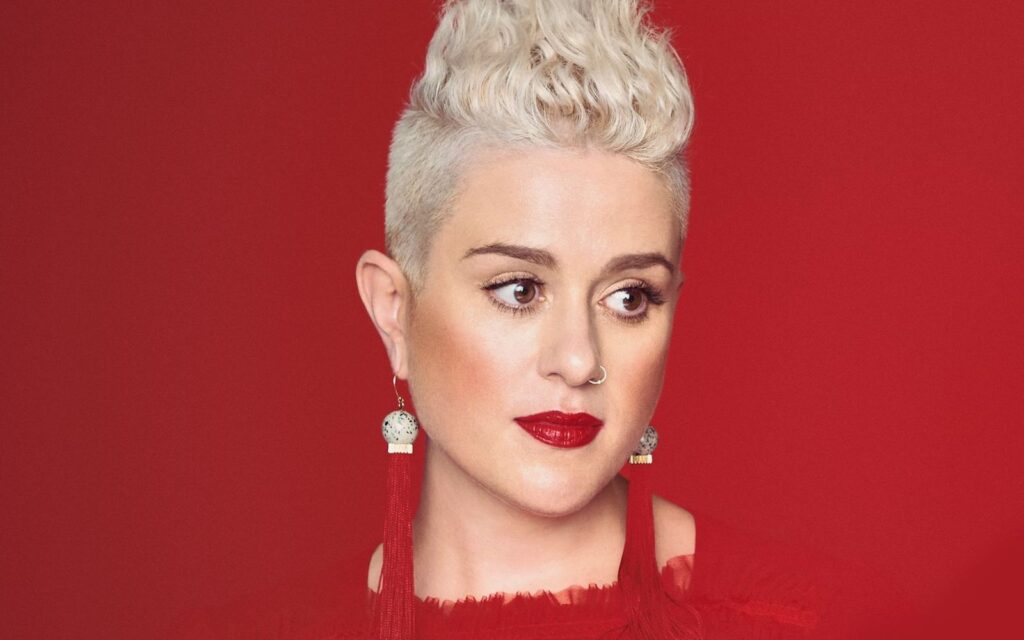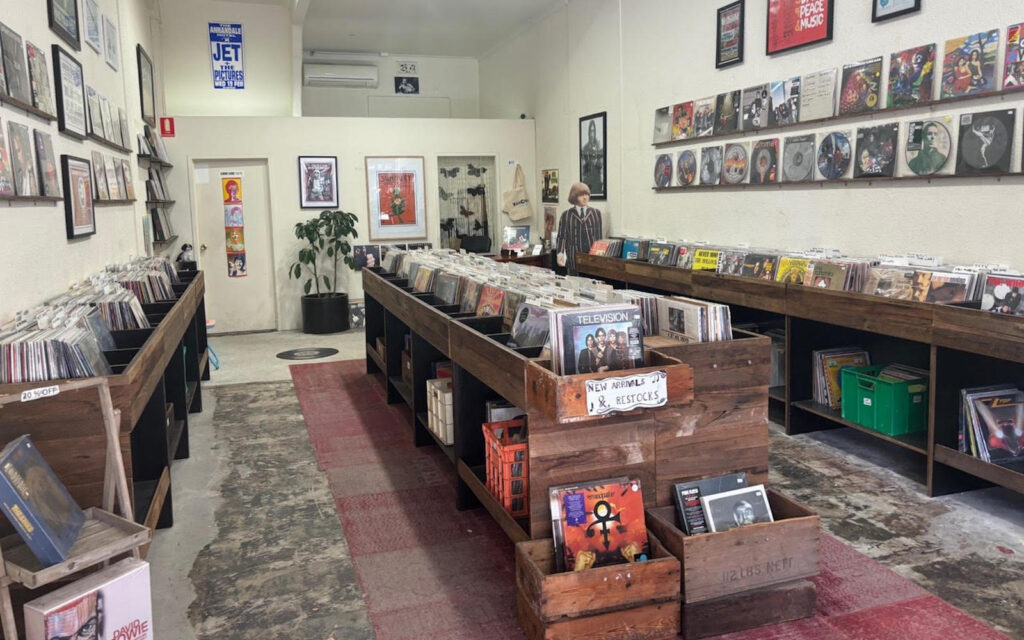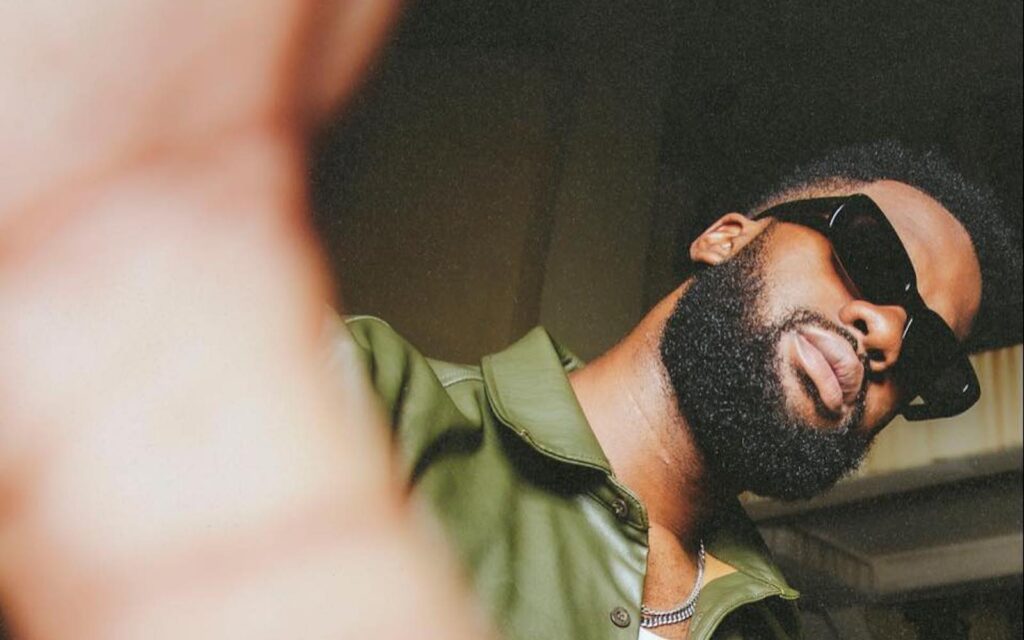“I met Tim through playing guitar in Megan Washington’s band,” Ferguson says. “We really found an instant rapport. Then I was like ‘Hey I think I’ve got a song that’s going to work for you, do you want to come in on this record?’”
“I found him very personally charming,” Rogers says. “I was knocked out thinking that I could ever get involved. I was really intimidated, and I generally only take on work things these days if I’m intimidated.”
Rogers’ intimidation stems from the fact he’s been an avid follower of The Bamboos since day one. “The original bass player was Stuart Speed, who was playing with me in the late-‘90s and a very dear friend who’s very sorely missed,” he says. “I’d seen them play at the Nightcat when I was behaving disgracefully.”
Conversely, Ferguson wasn’t much of a You Am I aficionado. “Although I was aware of his stature and presence and history to some degree as one of the great frontmen and artists of Australia, I didn’t really know the music that well.”
Along with impressing existing fans of The Bamboos and You Am I, I Got Burned became the biggest commercial success of The Bamboos’ career. Seizing upon this momentum, in early 2013, Rogers and The Bamboos embarked on the Rock N Soul Medicine Show tour. When it came to making the album, the pair were adamant about sharing the creative resposibilities.
“I was building these demos,” Ferguson says, “which had the whole form of a song without vocals and sending them to Tim just as sketches. Then the things that Tim responded positively to, I would work on a bit more.”
“I wrote most of the lyrics when I was in New York with my daughter,” Rogers says. “I’d walk her to school and then it took about two hours to walk back to where I was staying. So I was sort of dodging traffic and waiting until the bars opened and just making up things in my head.”
When Rogers returned from the US, he headed straight for Ferguson’s Yarraville studio to record his vocals. Ferguson’s choreographed countless studio collaborations over the years, and he’s learned not to be a perfectionist. “I’m looking for a great performance,” he says. “I’m not such a stickler for things like, ‘If it wasn’t recorded on a ten thousand dollar mic, we have to re-record it.’ With this record, a rawer aesthetic was actually even better.”
As a result, the majority of vocal takes on the album have survived from the demo recordings. For Rogers, Ferguson’s relaxed production approach came as a surprise. “I thought he’d be a lot more methodical,” he says. “But when we got to work together, after a couple of days I realised I could just be goofy and he’d let me do that and then we could knock it into something OK. Being asked to join and collaborate with someone you respect so much and a band that you just fucking adore, I didn’t want to fuck it up. I remember when Davey [Lane, guitar] got asked to join You Am I, his big thing was ‘I don’t want to fuck up one of my favourite bands’. That was my feeling with the ‘Boos. I’m very thankful that he just let me be who I am.”
BY AUGUSTUS WELBY
